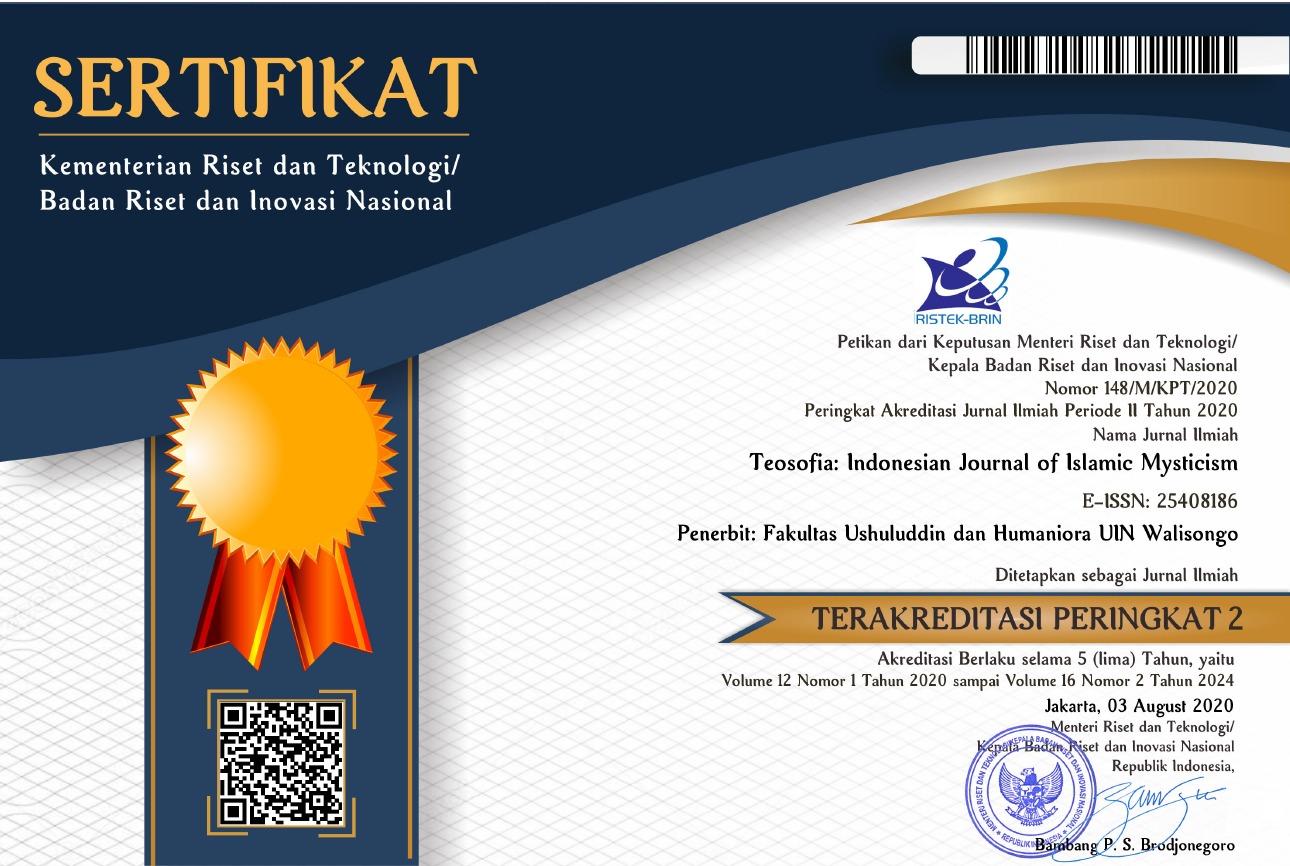Religiosity and Prostitution: A Case Study of Argorejo Prostitution in West Semarang
DOI:
https://doi.org/10.21580/tos.v6i2.3408Keywords:
religiosity, prostitutes, sociology of religionAbstract
One of the various illegal jobs in Indonesia is being a prostitute. It is commonly addressed to a woman, who engages in sexual intercourse for money as the source of livelihood. One of the local prostitution in this country is Argorejo Prostitution at Srikuncorostreet, Argorejo village Kalibanteng, West Semarang, Central Java. What remains unique is that the main activity of prostitutes is not only to serve and to satisfy costumers but also to do some religious activities, such as praying, reciting al-Quran, Fasting and others. The questions of this research are: What is the patterns of religiosity of Muslim prostitutes in Argorejo prostitution and Are there Impact of religiosity understanding pattern to their attitudes and deeds of prostitutes. This research produces the data in the form of notes or verbal words from the people or behaviors that can be observed, with the aim to describe the target's condition of the research according to the real source. Using the Phenomenology approach with a source of research data in use is the primary data source in the form of information from the field by direct observation at Argorejo Prostitution about activities implemented, then secondary data sources such as books, documentation data Argorejo Prostitution and activity report data Argorejo Prostitution. For data collection techniques that are used, among others: observation method, interview, and documentation. Data analysis using is descriptive analysis to clarify suitable with the problems are studied and that data is compiled and analyzed. The result of this research is descriptive about responses of prostitutes toward Islam religion, including the worship that they do and the perspective of religiosity understanding. Prospect in the next is all prostitutes be able to more aware with their religion although their job who have implemented in the past was a mistake that could be forgiven
Downloads
References
Gage M. J., 1883/1972. Woman, Church and State. Arno Press, New York. Stanton EC and the Revising Committee (eds), 1895/1974. The Woman’s Bible Coalition Task Force on Women and Religion, Seattle.
Hamilton, Macolm. The Sociology of Religion Theoretical and Comparative Perspectives, Second edition. London: Routledge, 2001.
Hidayat, Komaruddin. Psikologi Beragama Menjadikan Hidup Lebih Nyaman dan Santun. Jakarta Selatan: Hikmah PT Mizan Publik, 2006.
Kahmad, Dadang. Sosiologi Agama. Bandung: RemajaRosdakarya, 2009.
Kartono, Kartini. Psikologi Abnormal dan Abnormal Seksual. Bamdung: Mandar Maju, 1989.
Rahman, Yusuf. Islam and Society in Contemporary Indonesia. Jakarta: PPS-IIS UIN Syarif Hidayatullah, 2006.
Smith, Margareth. Rabi’ah: Pergaulatan Spiritual Perempuan, trans. by Dra. Jamilah Baraja. Surabaya: Risalah Gusti, 1997.
Stan, Lavinia. “Eastern Orthodox Views on Sexuality and the Body” Women's Studies International Forum 33 (2010), 38–6.
Syukur, Suparman. Etika Religius. Yogyakarta: PustakaPelajar, 2004.
Turner, Bryan S. Agama dan Teori Sosial, trans. by I. RidwanMuzir. Yogyakarta: IRCISOD, 2006.
Downloads
Published
How to Cite
Issue
Section
License
Copyright
The copyright of the received article shall be assigned to the journal as the publisher of the journal. The intended copyright includes the right to publish the article in various forms (including reprints). The journal maintains the publishing rights to the published articles. Therefore, the author must submit a statement of the Copyright Transfer Agreement.*)
Licensing

This work is licensed under a Creative Commons Attribution-ShareAlike 4.0 International License.
In line with the license, authors are allowed to share and adapt the material. In addition, the material must be given appropriate credit, provided with a link to the license, and indicated if changes were made. If authors remix, transform or build upon the material, authors must distribute their contributions under the same license as the original.
_______
*) Authors whose articles are accepted for publication will receive confirmation via email and send a Copyright Transfer Agreement.









